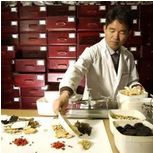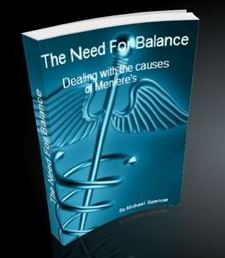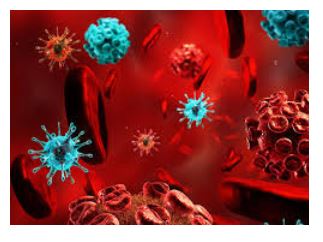Chinese medicine for Meniere’s disease
Chinese medicine for Meniere’s disease – an overview with case studies
Table of Contents

Chinese medicine tackles Meniere’s disease from a very different angle to. Western Medicine. In the west we treat the symptoms while in Chinese medicine they look for the cause and try to tackle that.
Western medicine places strong emphasis on the physical structures of the body, which are made up of different organic and inorganic substances, proteins, tissues and cells. These substances form the physiological basis of humans.
Traditional Chinese medicine, on the other hand, views life a little differently. Instead of emphasizing discrete body components with cells being the basic building blocks, the body is seen as a whole entity with connecting parts that work together to sustain life. Some parts have more energetic properties while others have more material characteristics.
According to shen-nong.com four causes can be identified:
- Deficit in the sea of marrow
- Deficiency in qi and blood
- Flood of cold-dampness
- Disturbance of liver-yang
- Viscous phlegm obstruction
Sea of marrow refers to the brain and spinal column, where the marrow is found. Marrow nourishes the brain, spinal cord and bones; it is derived from kidney essence and food nutrients.
Qi (pronounced chee) can be interpreted as the “life energy” or “life force,” which flows within us. Sometimes, it is known as the “vital energy” of the body. The Chinese character for qi means air.
Blood is viewed simply as the red fluid inside the blood vessels that provides nutrition for the body. The nutrients transported by blood are not restricted to physical materials. Its meaning can be extended to anything that provides nourishment to the body.
In western physiology, the liver is responsible for a number of important body functions, including the production and excretion of bile, which is used to break down fat and the detoxification of blood.
However, according to Chinese medicine, the liver’s functions are different. They include control of the central nervous system, the autonomic nervous system (the part of the nervous system over which a person does not have voluntary control), and the circulatory system. In addition, the liver is responsible for vision.
In traditional Chinese medicine a disharmony of body fluids can produce either external, visible phlegm, such as sputum secreted by the respiratory tract, or internal, invisible phlegm.
Internal, invisible phlegm is considered a particular problem. It is usually formed by dysfunction of the lungs and the spleen. Phlegm is one of the pathogenic (disease causing) factors responsible for the occurrence and development of a range of disorders.
Therapeutic aims of Chinese medicine for Meniere’s disease:
- For deficit in the sea of marrow: nourish yin, tonify kidneys, replenish essence and benefit marrow.
- For deficiency in qi and blood: To replenish qi and blood, reinforce the spleen and calm the mind.
- For flood of cold-dampness: warm the kidney yang, eliminate coldness and promote diuresis (elimination of fluid from the body by urination).
- For disturbance of liver-yang: smooth the liver, expel wind, nourish the yin and depress the yang component.
- For viscous phlegm obstruction: reinforce the spleen and liver, expel dampness and phlegm.
The concept of hot, cold and neutral foods in eastern cultures is an interesting subject and something perhaps western medicine and nutritionists could learn from.
For example, cold or cool fruits include apples, pears, oranges, bananas, persimmons, watermelons and kiwi fruits. Hot or warm fruits include peaches, longans, litchi, and cherries.
Neutral fruits include pineapple, grapes, hawthorn and plums
Hot and warm means it can improve circulation, speed up metabolism and raise body temperature. Cool and cold food can lower body temperature, calm people down and slow down the metabolism.
It is a whole in depth subject worth studying and the health benefits of what and when to eat something, and how that affects the body is something probably lost on western medicine.
Having lived in eastern Asia for many years I have seen the results of understanding your foods.
Chinese medicine also uses acupuncture for Meniere’s disease, targeting the reduction of vertigo and tinnitus symptoms.
We recently came across a press release touting a new herbal treatment from Chinese Medicine available in the US. My one problem with this particular product is that in the press release it is touted, and I quote,
“Herbal Medicine to Cure Meniere’s Disease, a breakthrough in this field for the past 150 years“
Any “product” that claims to “cure” Meniere’s should be immediately viewed with a certain amount of healthy considered skepticism. Meniere’s Disease is not a “Disease” as such to be cured by any pills or potions.
Meniere’s is an idiopathic condition and the symptoms can have many and varied causative factors. Getting to the root of what is causing your symptoms is going to “cure” (for want of a better word) you or rather finding what is causing your symptoms and also triggering attacks, then taking action to remove that cause from your life is going to stop the reaction that is making you feel so ill.
There are many possible causes ranging from Muscular skeletal to reactions to chemicals and possible viral and autoimmune problems. They are varied and may different in each of us.
This is not intended to discredit either Chinese Medicine or this new product in anyway, though it has to be said, my only other problem with this product is that the formula is “secret“.
It may be that this is a genuinely good product that allows you to live symptom free. We have been using and talking about a regimen of supplements for years that allow us to live symptom free.
They do this by aiding the body’s immune system to work as it should and deal with the inflammation within the inner ear. But we can not claim it is a “cure”, because it isn’t.
The Meniere’s Stop press release wording may be an unfortunate use of English, and it may well help relieve the symptoms. We know Ginkgo helps blood flow and in turn aids relief from Meniere’s. We know that Chlorella is packed with nutrients (considered by some as a “super food”) and can help relieve Meniere’s in some. So the notion of herbal medicine helping us should not be ignored.
We look forward to hearing from anyone who has tried “Meniere’s Stop” and your experiences both good and bad. The whole purpose of this site is to give Meniere’s sufferers a more accurate and complete picture of what can help them live free of this condition.
The press release mentioned above cannot be found now and having googled “Meniere’s Stop“, I could find nothing.
Case study using Chinese medicine for Meniere’s disease.
Hu Xi-Shu : Two cases of Meniere’s disease
Case #1
A 25 year old female Q?ng Huá University student presented at the clinic on October 16, 1965: For the last four to five months she has been experiencing dizzy head and vision, accompanied with nausea, flusteredness, inability to eat, and difficulty reading. A western medical doctor diagnosed her condition as Meniere’s disease, and administered medications which were ineffective. Her blood pressure was normal, she had a dry mouth with no desire to drink, a desire to sleep, a lack of strength, but with no problems moving, and her cycle had arrived late but was slightly scanty. She had a white tongue coat with a slippery root, and her pulse was deep, thin and wiry.
This is a pattern of blood vacuity with water exuberance. She was administered D?ng Gu? Sháo Yào S?n combined with Xi?o Bàn Xià T?ng and Wú Zh? Yú.
Results: After taking three packages of the formula, her symptoms resolved completely.
Commentary: In this case the blood vacuity was pretty obvious which is why D?ng Gu? Sháo Yào S?n was administered. This was coupled with yang vacuity of the stomach with counterflow of thin mucus, so Xi?o Bàn Xià T?ng and Wú Zh? Yú were used in combination.
Menieres Help Comment: Very crudely put, Chinese medicine works from a position that most ailments come from a problem within the internal organs and works to correct that problem, therefore believing it is tackling the problem at root cause.
There is a lot of validity to this assumption in most cases. Whether it is successful or not the basic desire to tackle the problem at root cause is sadly lacking in drug based western medicine, where only the symptoms are “treated” and the cause left untouched.
This main focus of Menieres-Help.Com has long been to identify and enable the reader to tackle the root cause(s) of Meniere’s symptoms.
Email us at: meniereshelp@gmail.com
If you found this article and site useful Click here to support Meniere’s Help paypal.me/menieres
Chinese medicine; 2 Cases of vertigo: Video
Read also:
http://www.shen-nong.com/eng/health/menieres_disease_treatment.html









